
Isabel dos Santos, once celebrated as Africa’s first female billionaire but last month referred to by the United Kingdom government as a “notorious kleptocrat”, has lashed out against international corruption investigations and sanctions against her.
Dos Santos, the daughter of Angola’s former president, Jose Eduardo dos Santos, told the UK’s BBC this week that sanctions imposed last month by the UK were part of a “politically motivated” plot by Angola’s government against her and her family.
Foreign Secretary David Lammy said UK sanctions formed part of his campaign to crack down on “dirty money”.
Here is what we know about her business empire, background and the allegations against her.
Who is Isabel dos Santos and who is her father?
Dos Santos is an Angolan billionaire and the daughter of the late Jose Eduardo dos Santos, the former president of Angola.
The 51-year-old is facing myriad international sanctions, asset freezes and corruption allegations, with Angola and other countries pursuing legal actions against her. She denies all allegations against her.
Advertisement
In 1979, dos Santos’s father became the second president of the oil-rich country, which had been a Portuguese colony until 1975.
Before that, dos Santos senior played an important role in Angola’s freedom struggle as a member of the People’s Movement for the Liberation of Angola (MPLA), the party that emerged as the ruling force after independence.
He led the country for 38 years until stepping down in 2017 against a backdrop of mounting political pressure and public frustration over widespread corruption, poverty, and nepotism in government ranks.
In 2022, he passed away, aged 79, in Barcelona, Spain, where he had been living and receiving medical treatment since leaving office.
During his tenure, his daughter became a prominent figure on Angola’s business landscape. Forbes declared her Africa’s first female billionaire in 2013 and, in 2016, she was appointed chair of Angola’s state oil company, Sonangol, but was dismissed in November the following year.
Why is Isabel dos Santos such a controversial figure?
Dos Santos was born in 1973 in the Azerbaijani capital, Baku, where her father was studying and where he met her Russian mother, Tatiana Kukanova.
She studied at private schools in the UK while Angola was embroiled in a civil war, which began immediately after independence and lasted for nearly 27 years, making it one of Africa’s longest and most devastating conflicts. She later earned a degree in electrical engineering from King’s College London before launching her business empire.
Advertisement
In 2020, the Luanda Leaks – some 700,000 documents detailing how the dos Santos family fortune was built using Angolan public money, which had been siphoned off into offshore accounts – were released by the International Consortium of Investigative Journalists (ICIJ).
Portuguese hacker Rui Pinto later claimed responsibility for the Luanda Leaks, saying he had handed over a hard drive “containing all data related to the recent revelations concerning Ms Isabel dos Santos’s fortune”.
While the exact number of companies dos Santos holds or has held stakes in remains unclear, the Luanda Leaks revealed a vast network of 400 companies and subsidiaries linked to her in Angola, Portugal and various offshore locations. The significant ones include:
- Ownership of Vidatel, a holding company registered in the British Virgin Islands
- Vidatel’s 25 percent stake in Unitel, Angola’s leading mobile phone company which she co-founded in 1998
- Major stakes in ZAP, a satellite TV operator in Angola and Portugal
- Extensive stakes in Angolan and Portuguese companies across multiple sectors, including telecoms, banking, energy, and construction
Dos Santos is widowed and has three children, details about whom are largely kept private.
Her late husband, Sindika Dokolo, died in 2020, in a diving accident near Dubai. A Congolese businessman and art collector, Dokolo was known for his efforts to reclaim African art looted during colonial times.
His legacy, however, also intersected with dos Santos’s controversial business empire. The ICIJ’s Luanda Leaks revealed that Dokolo was closely tied to dos Santos’s business dealings, with partnerships built using Angolan state resources.
Advertisement
Where is dos Santos now?
Dos Santos currently lives in Dubai, United Arab Emirates, from where she regularly posts about her life on social media.
In the past, she has also spent time in Portugal and the UK, both of which have played significant roles in her business dealings.
However, increasing international scrutiny, including an Interpol red notice issued in 2022 at Angola’s request, has restricted her movements, as it risks her detention and extradition if she enters a cooperating country.
Why has the UK imposed sanctions on her?
In November, Foreign Secretary Lammy announced sanctions on dos Santos as part of a crackdown on “dirty money” and kleptocracy – a form of government in which leaders exploit their power to steal public resources for personal gain.
A UK government statement issued last month said dos Santos had “systematically abused her positions at state-run companies to embezzle at least £350m [$442m], depriving Angola of resources and funding for much-needed development”.
This week, she told the BBC that UK sanctions resulting from this had “surprised” her as she had not been found guilty of “any corruption in any court in any country”.
The UK measures, launched under the country’s Global Anti-Corruption Sanctions Regulations, include a travel ban and the freezing of her UK assets.
Previously, in 2023, the UK’s High Court froze 580 million pounds ($736m) of dos Santos’s assets after Unitel accused her of not paying debts and diverting improper loans to her Dutch company, Unitel International Holdings (UIH). Unitel was able to file a lawsuit in the UK because the allegedly misdirected transactions were linked to British financial systems and businesses.
Advertisement
Have other countries sanctioned her?
Yes.
United States
In 2021, the US also sanctioned her using anticorruption laws, barring her from entering the country and accusing her of “significant corruption”.
Angola
Angolan authorities froze her assets in the country in late 2019 for allegedly “steering” state funds to companies in which she held stakes during her father’s presidency, including state-run oil giant Sonangol. In January 2020, Angolan authorities named dos Santos as a formal suspect over alleged mismanagement and misappropriation of funds while she was chairwoman of Sonangol.
Attorney General Helder Pitta Groz told a news conference in the capital, Luanda, that dos Santos had not directly shown any interest in collaborating with Angolan authorities.
In 2022, the Supreme Court ordered the “preventive” seizure of assets worth about $1bn held by dos Santos after authorities said they had evidence of alleged embezzlement and money laundering.
Earlier this year, Angola’s prosecutors charged dos Santos with 12 crimes, accusing her of defrauding the country of $219m while she was head of Sonangol.
Portugal
Shortly after the Luanda Leaks, Portugal froze her assets estimated at 500 million euros (approximately $550m).
Combined, the asset freezes in Angola and Portugal total more than $1.5bn.
Have sanctions had an impact on dos Santos?
Experts believe they have.
“In the Angolan case, money has been recovered and elite rent-seeking is less brazen than it was during the tail end of the dos Santos era,” Alex Vines, director of the Africa programme at Chatham House in London, told Al Jazeera.
Advertisement
He added that meaningful and lasting anticorruption efforts are possible, even in regions with weak state systems, if there are “stronger and independent institutions, transparency, and peer and cultural pressure to dissuade endemic corruption”.
In 2021, Forbes also removed dos Santos from its billionaire list. Once valuing her fortune at more than $2bn, Forbes explained that her frozen assets made it difficult to verify her net worth.
Where else have allegations been made against her?
Angola, Portugal, the Netherlands and the UK have all investigated allegations of corruption, financial mismanagement and embezzlement made against dos Santos.
Since her dismissal as chair of Sonangol in 2017, dos Santos has characterised the allegations as part of a politically motivated campaign led by President Joao Lourenco’s administration to dismantle the influence of the dos Santos family.
Dos Santos’s father had handpicked Lourenco, his former defence minister, to be his successor. Initially seen as a loyalist, Lourenco quickly distanced himself from the dos Santos family, launching an anticorruption campaign that targeted their wealth and influence.
In 2019, Portuguese authorities also launched investigations into dos Santos’s investments, particularly in Efacec Power Solutions and Banco BIC, over concerns about funds linked to Angolan state resources. While there have been no convictions, the ongoing inquiries have restricted her financial operations in Portugal.
The Luanda Leaks intensified public scrutiny in 2020 and broadened investigations into her business dealings.
Advertisement
In 2023, the Dutch Enterprise Chamber ruled that she illegally diverted 52 million euros from Sonangol into Exem Energy BV, a Netherlands-based company she co-owned with her late husband.
Dos Santos insists she is willing to defend herself in court, but has never stood trial. In Angola, where dos Santos risks arrest upon return, she has cited concerns about political persecution and a lack of due process as reasons to not appear.
Vines said dos Santos’s case “illustrates the vulnerability of elites that lose power or fall out of favour”.
Which other high-profile figures have been slapped with sanctions in recent years?
The UK sanctions announced last month also targeted Ukrainian oligarch Dmytro Firtash and Latvian politician Aivars Lembergs.
Firtash was accused of embezzling millions and hiding wealth and Lembergs of bribery and money laundering. Their family members are accused of holding or facilitating their assets.
Between 2019 and 2021, Teodoro Nguema Obiang Mangue, the son of Equatorial Guinea’s president, was sanctioned by the US, the UK and France for corruption and misappropriation of state funds, including spending on luxury items.
Russian oligarch and former Chelsea FC owner Roman Abramovich was sanctioned by the UK, the European Union and Canada in 2022 for his close ties to the Kremlin, following Russia’s invasion of Ukraine. Sanctions targeted his vast wealth, including luxury properties and investments.

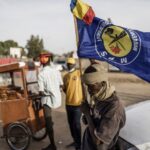
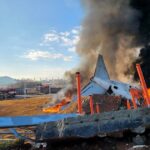
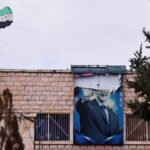
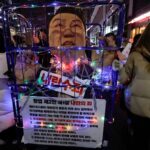

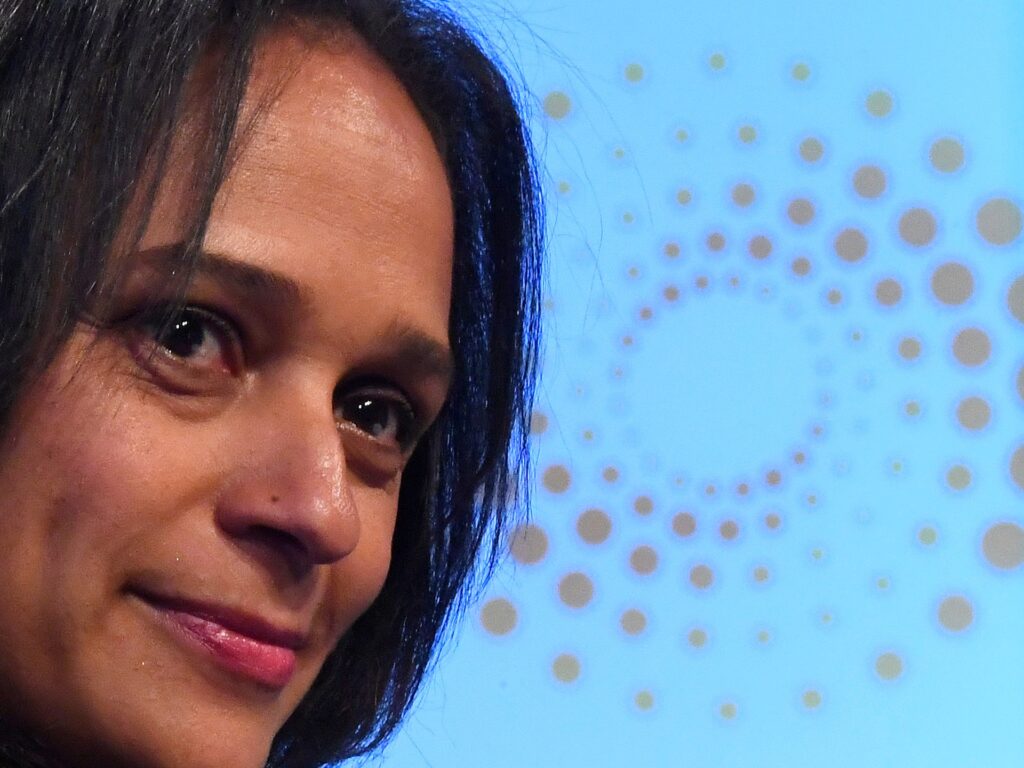
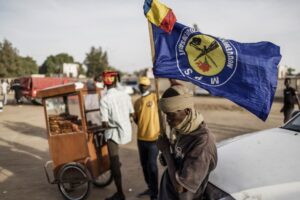
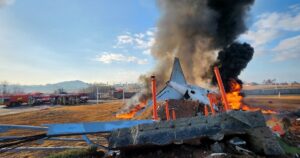
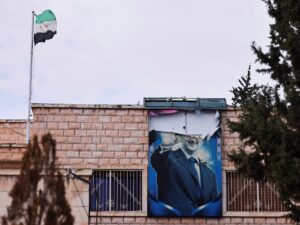

More Stories
Chad votes in first parliamentary election in over a decade: What to know
At least 29 killed in S Korea as plane crashes at Muan airport: Reports
Syrian authorities crack down on ‘remnants’ of Bashar al-Assad’s rule